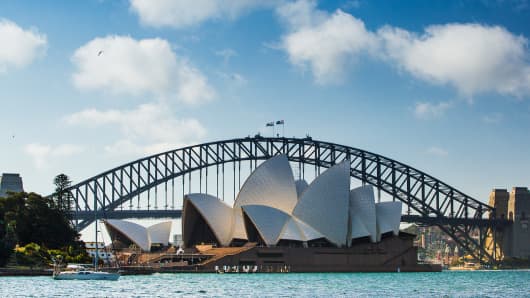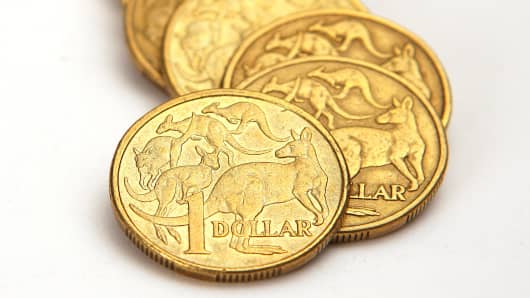After 21 years of uninterrupted economic growth, the risk of Australia's economy slipping into recession is growing, analysts say.
A fall in commodity prices, expectations for an imminent peak in mining investment, a cutback in government spending and a relatively high Australian dollar are some of the reasons for the growing pessimism.
Economists say they are particularly concerned because there are few signs that the 200 basis points worth of interest rate cuts since late 2011 are doing much to help out.
"The risk of recession in Australia has certainly gone up," said Shane Oliver, head of investment strategy and chief economist at AMP Capital in Sydney.
"The mining investment boom is slowing down but the rest of the economy has so far only shown tentative signs of picking up as yet after being subdued over the last three years by a combination of relatively high interest rates and the high Australian dollar," he added.
A mining boom fueled by demand from China has helped underpin Australia's economy, which remained resilienteven as many of its peers in the developed world slipped into recession following the global financial crisis.
(Read More: Will Lady Luck Return to Australia This Year)
But Oliver said he put the risk of a recession this fiscal year (2013-2014), defined technically as two quarters of negative economic growth, at around 15 to 20 percent.
U.S. investment bank Goldman Sachs this week cut its 2013 growth forecast for the Australian economy to 2.0 percent from 2.4 percent and put the risk of a recession at around 20 percent.
Data released last week showed the Australian economy grew 0.6 percent in the first quarter of the year from the previous three months, below expectations for a 0.8 percent increase. On an annual basis, gross domestic product (GDP) was also weaker than expected, rising 2.5 percent.




